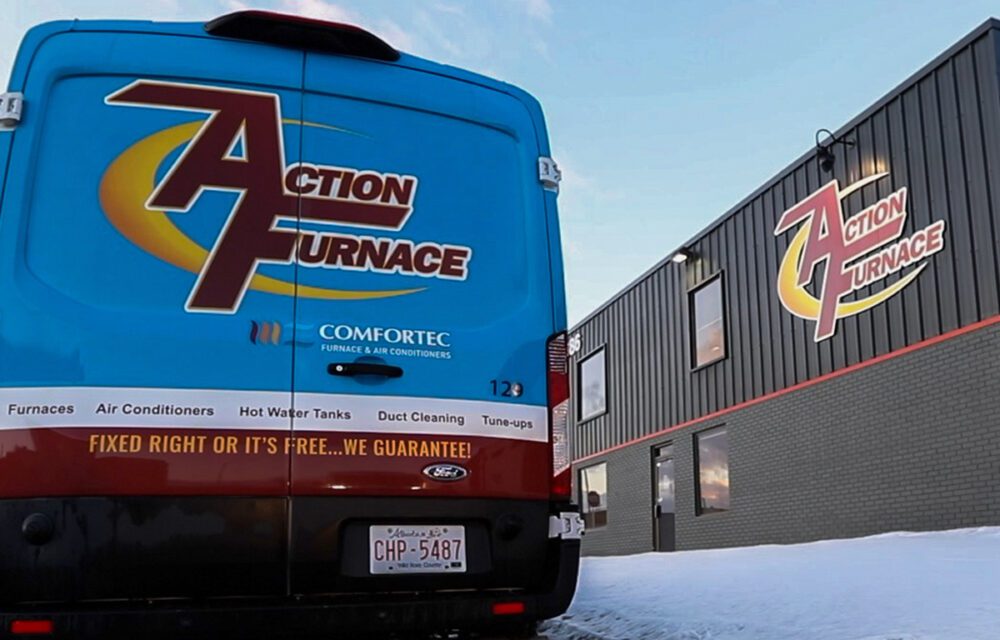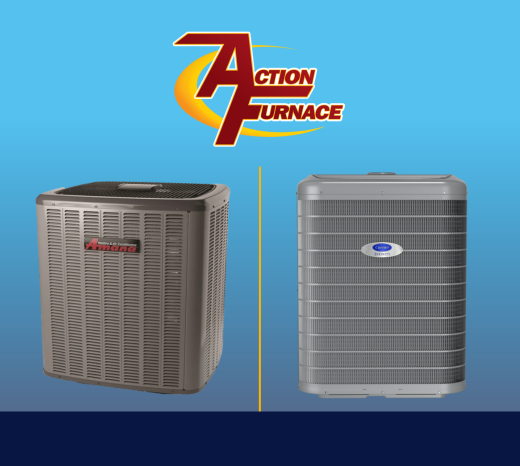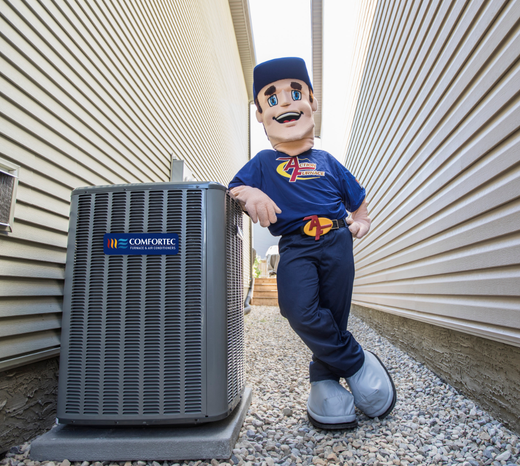Air quality is probably something you only think about when you’re outside. From smoke to particulate matter, the weather team tells you daily how...

Air quality is probably something you only think about when you’re outside. From smoke to particulate matter, the weather team tells you daily how the air quality is doing and whether you need to consider staying indoors.
But how do you make sure the air quality inside your home is adequate? Whether it’s the springtime allergy season or the dry heat of summer, a humidifier can significantly improve your indoor experience.
They’re effective and dependable too—a high-performance humidifier can evaporate more than 19 gallons of water each day and humidify a 2,500 square foot home.
A humidifier can not only impact the quality of your indoor air but your home’s infrastructure too. Installing one is an affordable way to increase the comfort—and quality—of your home.
Read on to discover the many ways a humidifier can help.
See also: Do I Need a Humidifier In My Home?
What Is a Humidifier?
A humidifier turns water into breathable vapour and disperses it into the air. This happens when air passes through a water-soaked pad and absorbs moisture. There are several different types of humidifiers. With a whole-home humidifier, the moistened air gets delivered to all parts of your house through your duct system.
Health-Improving Humidifiers
A little more moisture in the air can make a big difference, especially to your health. Humidifiers can soothe dry and inflamed sinuses, helping you breathe easy no matter the season.
If you’re experiencing any of the following, a humidifier might help:
- Nosebleeds
- Cracked lips
- Irritated eyes
- Sinus headaches
- Dry, cracked skin
- Frequent coughing
- Dry sinuses
Humidifiers may also reduce the risk of cold and flu by deactivating virus particles in the air. They can also lessen the symptoms of existing colds and flu. If you’ve got an unproductive cough, more moisture in the air can release trapped mucus and ease your congestion.
Lubricating your airways can also help with snoring—so if you’re struggling to sleep thanks to the sinus sounds of the person beside you, it might be time for a humidifier!
Save On Energy
It might seem too good to be true that adding an additional appliance to your home can help you save on energy bills. But, a humidifier can help with that too!
See also: 10 Tips to Lower Your Energy Bill
In the summer, when the air is warm and humid, it feels hotter than the mercury says. In the winter, the same principle applies. Humid air will feel warmer, so you can actually keep the thermostat dialled down a couple of degrees, and your bill dialled down a couple of dollars.
Plus, a warmer home decreases wear and tear on your furnace. A whole-home humidifier can work with your current HVAC system and ensure that every room achieves optimal moisture—no need for a separate unit for each space.

Defying Drying
Your home is an investment and you take great care in looking after it. But many people are unaware that dry climates can damage your furniture and even your drywall.
Wood in the walls, floors, and furniture can dry out in central Alberta’s continental climate. Drying wood shrinks, which can cause cracks and warping. Even expensive artwork and musical instruments can crack when the moisture is sapped from your home.
Installing a humidifier can help protect your possessions and your home’s infrastructure, preventing paint from chipping and peeling, keeping your houseplants alive, and increasing the lifespan of wood flooring.
Winter-Ready
Alberta’s climate means that winters are particularly dry, so while a humidifier will help keep your skin soft and your sinuses lubricated year-round, they are particularly useful in the colder months.
In the winter, Health Canada recommends that the humidity in your home be kept between 30 and 55%. A humidifier installation will help you monitor the moisture inside your home and keep it consistent, as well as raising the temperature in your living space for maximum comfort.
Maintain Moisture
Humidifiers require minimal maintenance. The pads in the unit will need to be changed every year or 2 but otherwise, your humidifier should run smoothly for many years.
Experienced HVAC technicians can assess your home and determine the best type of humidifier for your unique needs and your existing system. If a whole-home humidifier is the route you go, you’ll need to keep up with duct cleaning to ensure the moist air that reaches you is clean and free of dust and allergens.
It’s easy—and affordable—to have a humidifier installed. You’ll see the comfort and quality of your home improve quickly.



